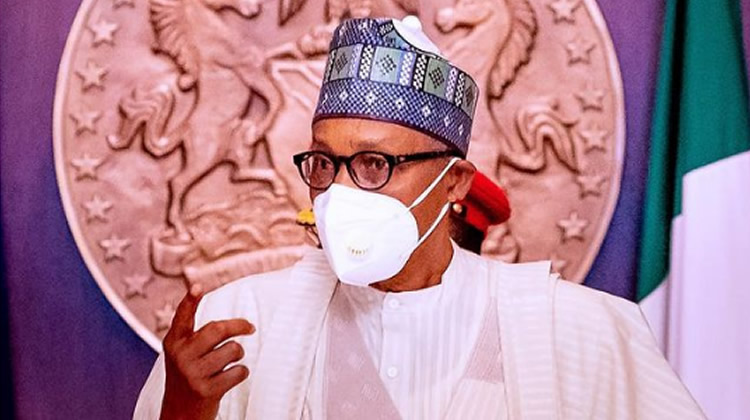The recent outbreak of the Omicron strain of the COVID-19 is creating panic in parts of the world. While some countries are already banning flights from mostly African countries and reinstituting stricter COVID-19 protocols, Nigeria’s response must be calculated. The era of copying protocols that are not suitable to our situation and do not correlate with the reality on the ground, as we did with the lockdown in March last year, should be well behind us.
A lot is still unknown about the Omicron strain of COVID-19 and studies are being done to this end. Therefore, it will be wise for Nigeria not to gamble with complacency. However, the measures to be taken to prevent the spread of this strain should suit local peculiarities. The use of facemask, sanitisers and social distancing, which over the months have slacked off, needs to be reintroduced. There is also a need to revive the PTF briefings which, in the past, have been a useful source of verified information about Nigeria’s handling of COVID-19. This will be crucial in eliminating falsehood and rumours about the new strain.
While other countries are quick to issue travel bans on mostly African countries over the new strain, Nigeria should make an informed decision that may include a travel advisory for Nigerians travelling to Omicron-endemic zones. Visitors to Nigeria from such places should be subjected to closer scrutiny.
Nigeria has consistently remained one of the countries with the lowest data of COVID-19 infections and deaths. With 214,513 total confirmed cases as at December 3, according to Our World in Data, and a total of 2,980 deaths as of the same date, the country is one of the least endemic in the world. It is, however, obvious that Nigeria is not testing enough, as is the case in most of Africa. This must change. Nigeria needs to ramp up its testing and tracing to identify those who are infected, but also to avoid wholesale lockdown of the country. Also, most of the quarantine units that were hurriedly erected across Nigeria in 2020 have been closed without any strain on the health system. And even with insufficient testing, the symptoms of COVID-19 are unmistakable. Patients with severe cases of the disease will eventually require medical attention. Fortunately, not many of such cases have been reported in Nigeria so far.
The West seems keen to play politics with COVID-19, first blaming it on China. Former US president Donald Trump infamously referred to the virus as “the Chinese virus” in a tweet that triggered racial abuses of people of Asian descent. The same strategy is being deployed against Africa with regards to the Omicron strain, which was identified by brilliant South African scientists.
Tackling a global pandemic like COVID-19 can never be accomplished if nationalists’ sentiments are allowed to prevail. No one country can escape the menace by simply shutting down its doors from the rest of the world. Likewise, it is impossible to end the pandemic if all the population of rich countries in the world are fully vaccinated while those from poorer countries have no access to vaccines. It is, therefore, paramount that for there to be a global solution to the pandemic, there has to be a global approach. Vaccines must be made universally available to residents of rich and poor countries.
While Nigeria, home of some 200 million people, has been quite fortunate not to be stricken by a severe outbreak, the country must play its part in ending the global pandemic. With only 1.7 per cent of the population fully vaccinated as against the now-impossible 40 per cent target by the end of the year, the government needs to ramp up sensitization of the populace on the vaccines.
We laud the government’s decision to bar unvaccinated civil servants from offices, as this will compel more people to take the vaccines, just as we urge health authorities to ensure vaccine availability in various states and localities in the country. Cultural and religious organisations should be co-opted to help drive this campaign and dissuade anti-vaxxers. The need for Nigerians to mask up, sanitize their hands and maintain social distancing, especially in the face of this new variant must be emphasised. We have been lucky to have low COVID numbers, and with no scientific explanation yet on why this is the case, we must not push our luck.
Yet, as Nigeria plays its part in tackling the pandemic, as a responsible member of the comity of nations, it must avoid a knee-jerk reaction that would result in locking down the country. Our contribution to the fight against COVID-19 must be measured and strategic. Nigeria cannot afford the economic horrors of another lockdown without a strong scientific basis for it.

 Join Daily Trust WhatsApp Community For Quick Access To News and Happenings Around You.
Join Daily Trust WhatsApp Community For Quick Access To News and Happenings Around You.


